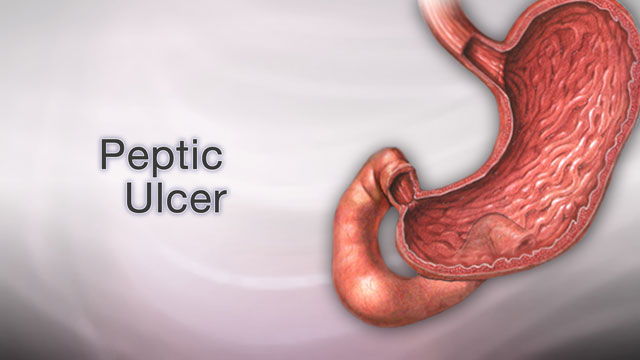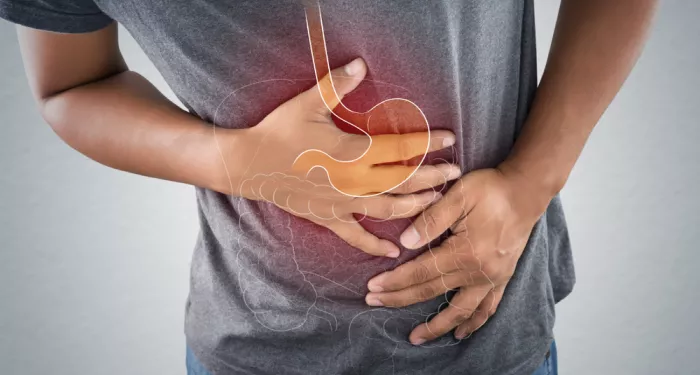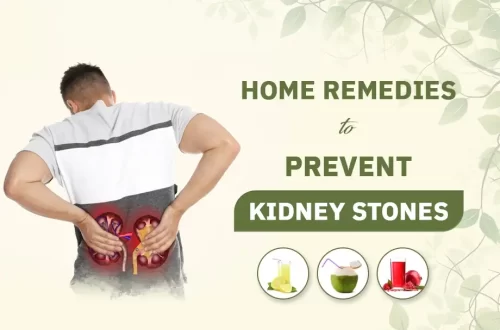Signs and Symptoms of Stomach Ulcers
Before delving into the signs and symptoms of stomach ulcer, understand that a stomach ulcer, also known as a peptic ulcer, is an open sore that forms on the lining of the stomach or the upper part of the small intestine (duodenum).
These ulcers can lead to a range of symptoms, including abdominal pain, bloating, heartburn, and nausea. Without treatment, stomach ulcers can result in severe complications, such as vomiting with or without blood, bloody stools, fatigue, and unexplained weight loss.
Symptom Progression
Symptoms of a stomach ulcer typically develop gradually and can vary significantly between individuals. Some people may experience mild symptoms that intensify over time, while others may have symptoms that fluctuate between flare-ups (periods of active symptoms) and remission (periods with few or no symptoms).
Prevalence
Stomach ulcers are relatively common, affecting 5% to 10% of people at some point in their lives. Recognizing the symptoms and knowing when to seek medical care is crucial for effective management and prevention of complications.

Common Signs and Symptoms of Stomach Ulcer
Abdominal Pain
The most frequent symptom is pain in the upper abdomen, located between the breastbone and belly button. This pain often feels like a burning, gnawing, or aching sensation, which may worsen at night or between meals when the stomach is empty.
Eating can sometimes relieve the pain temporarily, but the discomfort might return one to three hours after a meal. In some cases, eating may exacerbate the pain.
Indigestion
People with stomach ulcers often experience indigestion, characterized by discomfort in the upper abdomen. Symptoms include heartburn, bloating, belching, feeling full quickly, or feeling uncomfortably full after eating.
Nausea
Persistent nausea, especially after meals or when the stomach is empty, is common. This can manifest as a queasy feeling and an urge to vomit.
Loss of Appetite
Pain or discomfort from a stomach ulcer can reduce appetite, leading to decreased food intake and unintentional weight loss.
Rare Signs and Symptoms of Stomach Ulcer
Vomiting
Frequent vomiting, particularly if it contains blood, can indicate a more severe problem such as a stomach obstruction or internal bleeding. Blood in vomit often resembles coffee grounds.
Dark, Tarry Stools
Stools that are dark, tarry, or contain red or maroon-colored blood may signify bleeding from a stomach ulcer.
Unexplained Weight Loss
Unintentional weight loss may occur due to reduced appetite or difficulties in nutrient absorption caused by the ulcer, potentially leading to malnutrition over time.
Fatigue
Persistent fatigue can result from anemia caused by slow, chronic blood loss from the ulcer. Additionally, pain from the ulcer can disrupt sleep, contributing to daytime tiredness.
SEE ALSO: Reasons for Heart Palpitation
When to See a Healthcare Provider
Although many people with stomach ulcers do not experience pain, it is important to consult a healthcare provider if you have any symptoms, especially if they persist for more than a week.
A healthcare provider can conduct a physical examination and order diagnostic tests, such as blood tests or imaging studies, to determine the cause of your symptoms and provide a diagnosis.
Urgent Symptoms
Seek immediate medical attention if you experience any of the following:
- Sudden, severe abdominal pain
- Difficulty breathing
- Rapid heart rate
- Dizziness or fainting
- Sweating
- Confusion
- Vomiting blood
- Dark, tarry stools
- A stiff, tender abdomen
Urgent Symptoms of Stomach Ulcers
Stomach ulcers can sometimes lead to severe complications that require immediate medical attention. If you experience any of the following urgent symptoms, seek medical help without delay:
Sudden, Severe Abdominal Pain
Intense, sharp pain in the abdomen that comes on suddenly can be a sign of a perforated ulcer. This occurs when the ulcer creates a hole in the wall of the stomach or duodenum, leading to the leakage of stomach contents into the abdominal cavity.
This condition is a medical emergency requiring prompt surgical intervention to prevent widespread infection (peritonitis) and other life-threatening complications.
Difficulty Breathing
Shortness of breath or difficulty breathing can be indicative of severe abdominal distress or an infection that has spread to other parts of the body. It may also suggest the presence of internal bleeding that is compromising your respiratory function.
This symptom should not be ignored, as it can signify a critical condition needing urgent medical care.
Rapid Heart Rate
A fast or irregular heartbeat can result from significant blood loss or severe pain associated with an ulcer. When an ulcer bleeds, the body may compensate for the loss of blood by increasing the heart rate to maintain adequate blood flow and oxygen delivery to vital organs.
A rapid heart rate can also indicate the onset of shock, a life-threatening condition requiring immediate attention.
Dizziness or Fainting
Feeling lightheaded, dizzy, or faint can be a symptom of severe blood loss (hemorrhage) from an ulcer. Blood loss reduces the amount of oxygen-carrying red blood cells, leading to decreased oxygen delivery to the brain and other tissues. Dizziness or fainting episodes can be signs of significant anemia or shock, both of which are medical emergencies.
Sweating
Excessive sweating, especially when accompanied by other severe symptoms like abdominal pain or dizziness, can be a sign of shock or significant blood loss. Sweating is the body’s response to stress and can indicate that the body is struggling to maintain normal function. This symptom warrants immediate medical evaluation.
Confusion
Confusion or altered mental status can occur due to severe infection, significant blood loss, or dehydration. When the body is deprived of adequate oxygen or is dealing with systemic infection, the brain’s function can be compromised, leading to confusion.
This symptom requires urgent medical assessment to determine the underlying cause and appropriate treatment.
Vomiting Blood
Vomiting blood, also known as hematemesis, is a clear sign of internal bleeding from a stomach ulcer. The blood may appear bright red or have a coffee-ground appearance if it has been partially digested.
This symptom indicates a potentially serious bleed that needs immediate medical intervention to stop the bleeding and stabilize the patient.
Dark, Tarry Stools
Black, tarry stools (melena) are another sign of gastrointestinal bleeding. The dark color indicates that the blood has been digested, suggesting that the source of bleeding is higher up in the gastrointestinal tract, such as the stomach or duodenum.
This condition requires prompt medical evaluation and treatment to prevent further blood loss and complications.
A Stiff, Tender Abdomen
A rigid, tender abdomen that hurts when touched can indicate peritonitis, a serious infection of the abdominal cavity often caused by a perforated ulcer. The pain is usually severe and constant, and the abdomen may feel hard due to inflammation.
This is a surgical emergency that necessitates immediate medical attention to prevent further complications and potentially save the patient’s life.
Summary
If you experience any of these urgent symptoms, it is crucial to seek medical attention immediately. These signs can indicate severe complications from a stomach ulcer that require prompt diagnosis and treatment to prevent life-threatening outcomes.
Always err on the side of caution and consult a healthcare provider if you are unsure about the severity of your symptoms.
A Quick Review
A stomach ulcer, or peptic ulcer, is an open sore on the stomach lining or the upper small intestine. Common symptoms include abdominal pain, indigestion, nausea, burping, and loss of appetite.
While some individuals with stomach ulcers may not experience symptoms, others may have symptoms that come and go, lasting from minutes to hours. Symptoms often worsen between meals or at night and may be temporarily relieved by eating or taking antacids.
In some cases, stomach ulcers can lead to severe complications. It is important to seek medical care if you experience symptoms such as bloody stools, vomiting, unexplained weight loss, or excessive fatigue.
Frequently Asked Questions (FAQ) on Signs and Symptoms of Stomach Ulcers
- What is a stomach ulcer?
A stomach ulcer, also known as a peptic ulcer, is an open sore that develops on the lining of the stomach or the upper part of the small intestine (duodenum). These sores occur when the protective mucus layer of the stomach is reduced, allowing stomach acid to damage the lining.
- What are the most common symptoms of a stomach ulcer?
The most common symptoms of a stomach ulcer include:
- Abdominal pain, especially in the upper abdomen
- Indigestion (heartburn, bloating, belching)
- Nausea
- Loss of appetite
- What does stomach ulcer pain feel like?
Stomach ulcer pain is typically described as a burning, gnawing, or aching sensation in the upper abdomen. This pain often feels worse at night or between meals when the stomach is empty. Eating may temporarily relieve the pain, but it can return a few hours after eating.
- Can a stomach ulcer cause nausea and vomiting?
Yes, a stomach ulcer can cause persistent nausea and an urge to vomit, especially after eating meals or when the stomach is empty.
- Is it common for people with stomach ulcers to have no symptoms?
Yes, nearly 70% of people with stomach ulcers may be asymptomatic, meaning they do not experience any noticeable symptoms.
- What are the warning signs of a serious complication from a stomach ulcer?
Serious complications from a stomach ulcer can present with symptoms such as:
- Vomiting blood (which may look like coffee grounds)
- Dark, tarry stools
- Sudden, severe abdominal pain
- Difficulty breathing
- Rapid heart rate
- Dizziness or fainting
- Sweating and confusion
- A stiff, tender abdomen
- When should I seek medical attention for stomach ulcer symptoms?
You should seek medical attention if you experience any of the following:
- Persistent abdominal pain lasting more than a week
- Blood in your vomit or stools
- Unexplained weight loss
- Severe fatigue
- Severe or sudden abdominal pain
- Difficulty breathing or rapid heart rate
- Dizziness or fainting episodes
- Sweating or confusion
- Can stomach ulcers cause changes in appetite and weight loss?
Yes, stomach ulcers can cause a decrease in appetite due to pain or discomfort, leading to unintentional weight loss. In some cases, ulcers can also affect nutrient absorption, contributing to weight loss and malnutrition.
- How is a stomach ulcer diagnosed?
A healthcare provider can diagnose a stomach ulcer through a combination of medical history, physical examination, and diagnostic tests such as endoscopy, blood tests, stool tests, and imaging studies.
- What are the potential complications of untreated stomach ulcers?
Untreated stomach ulcers can lead to serious complications, including:
- Internal bleeding
- Perforation (a hole in the stomach or duodenal wall)
- Peritonitis (infection of the abdominal cavity)
- Gastric obstruction (blockage in the digestive tract)
- Increased risk of stomach cancer
- What should I do if I suspect I have a stomach ulcer?
If you suspect you have a stomach ulcer, it is important to consult with a healthcare provider. They can evaluate your symptoms, perform necessary tests, and recommend appropriate treatment to prevent complications and promote healing.
- How can I prevent stomach ulcers?
Preventing stomach ulcers involves managing risk factors, such as:
- Avoiding excessive use of NSAIDs (nonsteroidal anti-inflammatory drugs)
- Limiting alcohol consumption
- Not smoking
- Managing stress
- Practicing good hygiene to avoid infections, such as H. pylori
Conclusion
Stomach ulcers can cause a range of symptoms, from mild discomfort to severe pain and complications. Understanding the signs and knowing when to seek medical help can ensure timely treatment and prevent serious health issues.
If you have any concerns or experience persistent symptoms, consult a healthcare provider for proper diagnosis and management.

A graduate of Computer Science and Information Management Technology. Diploma – Caregiving, Certificates – Dementia and Diabetes Awareness and Management. A researcher, blogger, songwriter, singer and acoustic guitarist. Born in an environment where natural talents such as healing are imparted at our natural birth. This natural talents of healing is the result of our genetic inheritance and the training from family environment.












